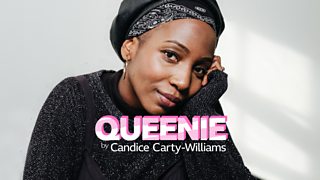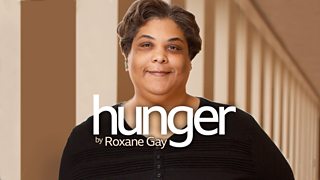How I escaped the notorious Westboro Baptist Church
Megan Phelps-Roper grew up in Kansas in the infamous Westboro Baptist Church, founded by her Grandfather. The religious sect, the subject of two ΒιΆΉΤΌΕΔ 2 Louis Theroux documentaries, put great faith in its own ‘literal’ interpretation of the Bible – both horrifyingly homophobic and anti-Semitic. Its members picketed schools, and even funerals, in an attempt to express these poisonous opinions, and rejoiced in the world’s worst disasters.
In her Memoir, Unfollow, Megan describes growing up in the Church and how she found the courage to leave, finally putting Westboro’s hateful doctrines behind her.

-
![]()
Unfollow by Megan Phelps-Roper
Megan Phelps-Roper's memoir of growing up in, and then leaving the notorious Westboro Baptist Church.
βFrom the age of five I was out there protesting too, believing that I was preaching Godβs truth.β
Megan’s grandfather, Fred Phelps, was the Westboro pastor. He would load up his red pick-up with homemade signs, representing what he believed was the “scriptural position on homosexuality”: “Militant gays spread aids”, “Gays are worthy of death” and – what would become the Church’s most infamous message – “God hates fags.” Phelps would set off to spread what he believed was God’s message, and the rest of the congregation – consisting almost entirely of Megan’s aunts, uncles, cousins, siblings and parents – would follow in a caravan of vehicles. Rain or shine, without fail, they stood on the roadside with their placards.
Megan and her family were reviled by the local Topeka community. They had eggs and bottles of urine thrown at them; they were physically threatened. So they retaliated. They targeted the police department, the city government, many local churches that had joined the counter protests against them, and any person who spoke out against them, or spoke up for gay people.
The Churchβs indoctrination was powerful and controlling
Megan and her ten siblings were told that their fate was already decided by God, that they were predestined to go to either heaven or hell, and they wouldn’t know until the Day of Judgment just what was in store for them. But, though powerless to alter their destiny, the surest sign they could have that they were one of God’s elect was their obedience.
“We had taken to the streets because we had a solemn duty to obey God and to plead with our neighbours to do the same,” says Megan. “It didn’t matter that the world hated the message. Whatever it would cost us, we would pay.”

βSchool became an escape for me, from mum and the frequent eruptions of her caustic temperβ
It wasn’t just on the streets that Megan faced conflict – it was also at home.
Megan’s mother was a lynchpin of the Westboro community. She cared for the whole family, gave interviews to reporters, organised picket trips, and scheduled day care and church cleanings – her contributions were endless. But she was also unpredictable and ruthless.
Megan came to dread the often “nightmarish” period between waking and leaving for school. Her mum would swing between kindness and “unjustified cruelty.” One of them would always be at the end of their mother’s razor tongue or a “three-foot long dowel rod.”
As a teenager, Megan got her first inkling that something was wrong
The congregation began picketing at different events across the country – from gay pride marches to the streets of San Francisco. And they began to protest at the funerals of soldiers killed in Iraq. God was showing his disdain, they argued, by killing soldiers in battle. In the press release announcing their protest at one military funeral, Megan’s grandfather wrote: “They turn the country over to fags, they’re coming home in body bags.”
But exultingly singing military parodies in the face of the grief-stricken families made Megan feel “unwillingly, involuntarily, like a terrible person.” She would try to buttress herself with bible verses justifying the behaviour, but a niggling doubt had crept in.
βBefore Twitter, friendship with outsiders had always been easy to avoidβ
Megan became Westboro’s voice on Twitter and she found great success in getting attention for their message. She had become a skilled defender of the Church and its many controversial doctrines. She baited celebrities with anti-gay messages and openly celebrated Japan’s Fukushima nuclear disaster.
But Twitter also opened her up to the opinions of others, outside of the Church. Megan got chatting to a man from South Dakota, known as CG, and before long they were playing Words with Friends together every night. The weeks and months passed and her online opponent would ask questions about her community and doctrine, and she would respond. In turn, she learned that his family was of Norwegian descent, and he was tall with blonde hair and blue eyes.
GC’s questioning about the funeral picketing made her uneasy. “When I wanted to talk about commandments and truth, CG was focused on humility, gentleness, compassion,” says Megan. She had been taught to believe that there were two types of people in the world – good and evil. But CG presented a third option. People who were decent, but not religious. What reason would God have to condemn people like this?
Is social media the modern day diary?

Tingy Simoes, a director of Pencourage, an online diary site and Vlogger Patricia Bright discuss the modern day twist on a diary.
When her family celebrated the death of Amy Winehouse, CG lamented the singer’s early demise. When a far-right terrorist killed 77 in a car bombing, her family watched the rising body count with glee, but Megan felt mournful. “The truth was that I had started to feel sad in response to tragedies, even when CG wasn’t there to prompt me. A small part of me began to wonder if there was something wrong with Westboro.” But she wouldn’t admit it to CG, or even to herself.
The truth was that I had started to feel sad in response to tragedies... a small part of me began to wonder if there was something wrong with Westboro.Megan Phelps-Roper
Any feelings that were developing between the pair went unspoken. Only Westboro members were permissible partners, so Megan knew it was hopeless. But the subtext was there: in the words they chose to spell on the game board, and in the songs and lyrics they shared.
One night, Megan dreamt that CG came to her and they lovingly embraced. Her feelings were now undeniable. The next day she told him that she was deleting the app. She had let an “ungodly affection for an unbeliever take root” in her heart. “If I didn’t rip it out with both hands,” says Megan, “I would fall away and lose everything.” That night she cried herself to sleep. “Life went back to normal but it was greyer than before. I’d finally seen what I’d been missing, and my world felt impoverished without it. Without him.”
A moment of clarity
Things changed when the Church was taken over by “The Elders” – Westboro’s older married men. Suddenly, there was a strict code for what women in the congregation could wear, and decision making was no longer a Church wide activity – rules came from the top down.
I crossed a chasm in that split second.Megan Phelps-Roper
Megan’s younger sister, the wilful 19-year-old Grace, found herself the target of this new brand of draconian discipline. She was forbidden from seeing friends, told what course to study, told what summer job to do. And she was informed that with one wrong move, she would be excluded from the Church. Megan knew that the judgements levelled at her sister were wrong. “I could no longer blindly trust the judgement of these men,” says Megan. “They had developed a toxic sense of certainty in their own righteousness… and now seemed ready to lay waste to anyone who disagreed with them.”
It was a moment of horrifying clarity. “I finally saw what had eluded me for so long,” says Megan. “We had all been behaving in the exact same way towards outsiders.” They were doing to themselves what they had been doing to others for 20 years.
“I crossed a chasm in that split second,” says Megan, and there was no going back. Her mind settled on its terrible conclusion: “There was something terribly wrong at Westboro. God was not in this place. We were not special.”
βWestboroβs teachings were a monstrous lie, and I made the decision to leave.β
Age 26, Megan left the Church, and she took her sister Grace with her. “It was devastating to lose my beloved family, my entire world, but I knew I had to walk away and start over.”
With each new kindness, I understood with ever greater clarity the depths of my ignorance about the world.Megan Phelps-Roper
They headed to Deadwood, a city in South Dakota, to begin a new life. It wasn’t easy. Before, the Church had controlled her every move but now Megan had to make decisions for herself, and it was terrifying. The sisters were homeless, friendless and near penniless. And yet, “The freedom was heady,” says Megan. At the age of 27 she went to a bar for the first time.
Grace and Megan released a statement, explaining their decision and apologising for the hurt they had caused. The response was not what they expected. They were inundated with encouragement and offers of friendship and places to stay by the hundreds. “With each new kindness, I understood with ever greater clarity the depths of my ignorance about the world,” says Megan. “It was starting to occur to me that there might be a lot more goodness in the world than I had believed.”
She made friends with David, the founder of a Jewish blog who she had sparred with on Twitter years earlier. She’d cut contact when his opinions made her question Westboro’s teachings. Back then, being influenced by outsiders was “a moral failing.” Now, she feels profound gratitude to Twitter. “It had put me in conversation with people and ideas that challenged beliefs that had been hammered into me since I was a child.”
And, of course, it also led her to CG – Chad. He got back in touch and the two of them finally met in a casino in Deadwood. Now, they’re married with a daughter of their own.
Megan still has no contact with her own family. “I want to tell them that the world isn’t evil,” she says. “That it’s full and complicated and beautiful and good, filled with unknown truths and unbroken hopes, and that it’s waiting just for them.”
More from Radio 4
-
![]()
Unfollow by Megan Phelps-Roper
Megan Phelps-Roper's memoir of growing up in, and then leaving the notorious Westboro Baptist Church.
-
![]()
Queenie by Candice Carty-Williams
Debut novel by Candice Carty-Williams - a darkly comic and unflinchingly raw depiction of a young woman trying to navigate her way in the world.
-
![]()
Trick Mirror by Jia Tolentino
In this essay, I Thee Dread, Jia explores the excesses of the wedding industry.
-
![]()
Hunger by Roxane Gay
Roxane Gay reads the memoir of her body and her hunger.




